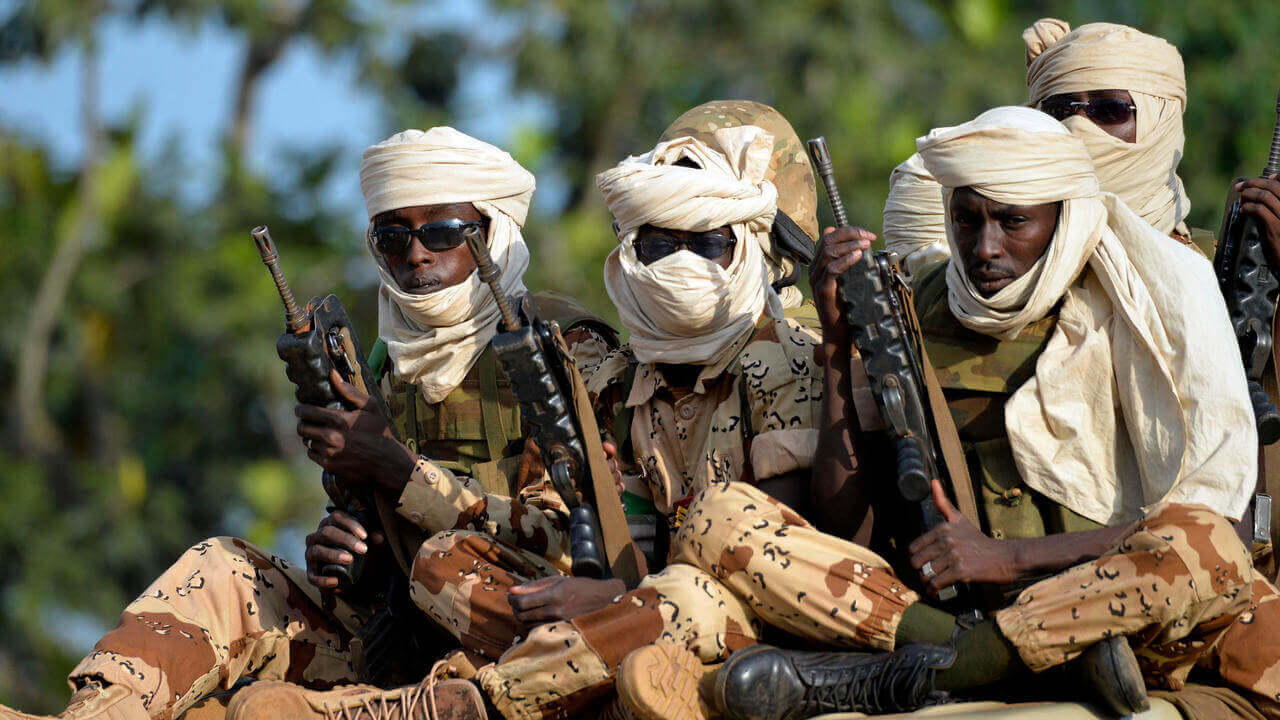Chad and the Central African Republic (CAR) have agreed to launch a joint investigation into the deaths of six Chadian soldiers who were reportedly killed by CAR troops on Sunday. The investigation is aimed at quelling tensions, after Chad accused the CAR army of committing a war crime and a “premeditated murderous attack,” and warned that the incident “cannot go unpunished.”
The two countries share a 1,000-kilometre border and CAR troops reportedly killed one Chadian soldier along the border and kidnapped and executed five others after taking them to their side of the border. The CAR government has since said that its forces were tracking rebels near the border, resulting in the deaths of troops on both sides. In fact, three Russian soldiers, who were deployed to support the CAR military, were also killed (from a mine explosion) during the operation.
CAR Communications Minister Ange Kazagui has since said: “The government deplores the loss of human life and the injuries thus caused within the Chadian and Central African armies.” Chad, for its part, has accepted CAR’s account of events. In fact, a senior Chadian security official told AFP that CAR soldiers were “pursuing rebels” from the United for Peace in Central Africa (UPC) group, which has the stated aim of removing CAR President Faustin-Archange Touadéra from power.
Chadian Foreign Minister Chérif Mahamat Zene called on UN peacekeeping mission MINUSCA, the African Union, and the Economic Community of Central African States (ECCAS) to look into the incident.
In the interest of maintaining cordial relations, the countries have jointly “recognised the gravity of the situation and stress[ed] the urgency of clarifying the circumstances in which this attack was carried out.” They announced the formation of an independent international investigatory commission, and also committed to improve border security to avoid the possibility of such instances taking place again in the future.
To this end, Chadian military spokesperson General Azem Bermandoa Agouna announced on Tuesday: “We were attacked on our territory by the army of a neighbouring country. So that this kind of thing does not repeat itself, we are obliged to reinforce security at the border.”
In the past, the CAR has frequently accused Chad of backing rebel militia that create instability in the CAR. In fact, Chadian troops were previously stationed in the CAR as part of an African peacekeeping mission following a rebellion to oust former President François Bozizé in 2013. However, they withdrew their soldiers from the country in 2014 after being accused of offering support to the Seleka rebels.
In fact, there is a coalition of six rebel groups in the CAR who are collectively working to oust Touadéra, called the Coalition of Patriots for Change (CPC). Together, they have previously held roughly two-thirds of the country’s territory, but have been unsuccessful in their bid to unseat the president, due in large part to assistance from Russian paramilitary forces, such as those from the Wagner Group.
Since 2013, the CAR has become a hotbed for conflict between the country’s minority Muslim community and the Christian and animist groups. This is due to the fact that Bozizé’s ouster was driven by the Seleka rebel coalition, which is largely comprised of Muslims.
Consequently, fighting between Muslim and Christian militias has left much of the country under militia control, undermining the legitimacy and power of the government. Although France intervened in 2016 to usher in democratic elections that saw Touadéra rise to power, the underlying tensions that drove the conflict following the 2013 coup remain.
In fact, after Touadéra was re-elected in December, in an election in which former leader Bozizé’s candidacy was rejected by the constitutional court, the violence has only seemed to increase. Bozizé then became the leader of the CPC, whose troops attempted to storm the capital city, Bangui.
While they were pushed back from Bangui in the early part of the year, this past week’s incidents illustrates that they are still very much a part of the political conversation and have a wide-reaching, cross-border impact.
Chad, CAR Agree to Joint Investigation on Border Attack Following War Crime Accusation
CAR troops reportedly killed one Chadian soldier along the border and kidnapped and executed five others after taking them to their side of the border.
June 3, 2021

SOURCE: MIGUEL MEDINA / AFP
